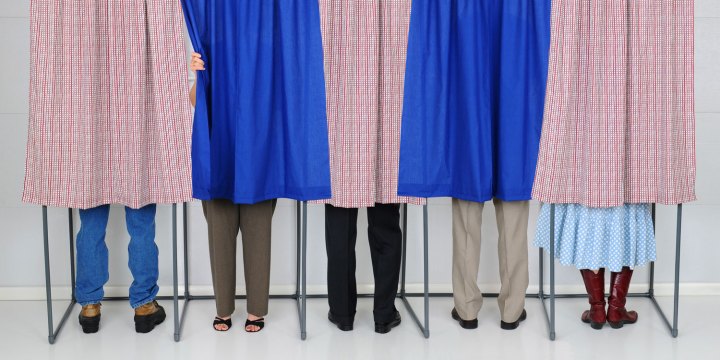
A federal appeals court on Wednesday upheld a lower court ruling that the state’s ban on voters snapping photos of their ballot and sharing them on social media is unconstitutional.
It’s a big win for the state’s selfie snappers, as well as Snapchat, which in April threw its weight behind the legal challenge brought by three New Hampshire voters who’d ignored the ban during a September 2014 primary.
The state had argued that ballot selfies could lead to fraud where, for example, a voter is coerced into voting for a particular candidate and then using methods such as social media to prove their selection. Violating the New Hampshire law could’ve resulted in a fine of up to $1,000.
But this week’s unanimous ruling, brought by a three-judge panel of the First U.S. Circuit Court of Appeals in Boston, decided that New Hampshire authorities had no compelling proof that selfies snapped in the ballot booth led to vote buying or voter coercion, and so declared the ban unconstitutional.
In its ruling, the appeals court said that digital photography, the internet, and social media “are not unknown quantities – they have been ubiquitous for several election cycles, without being shown to have the effect of furthering vote buying or voter intimidation.”
It added that despite the relatively long existence of digital photography and “small cameras,” New Hampshire authorities “cannot identify a single complaint of vote buying or intimidation related to a voter’s publishing a photograph of a marked ballot during that period.”
In documents submitted by Snapchat earlier this year supporting the challenge to New Hampshire’s selfie ban, the social media company insisted the ballot selfie “captures the very essence of [the political] process as it happens – the pulled lever, the filled-in bubble, the punched-out chad – and thus dramatizes the power that one person has to influence our government.” It also claimed that ballot selfies help to encourage younger voters to engage in the political process.
New Hampshire officials are reportedly reviewing this week’s ruling and could take the matter to the U.S. Supreme Court.
It’s worth noting that no federal law addresses the issue of ballot selfies, meaning selfie shooters should check local rules should they feel compelled to snap a self-portrait during their next visit to the ballot booth.
Editors' Recommendations
- Snapchat hopes its new AI selfie feature will be a moneymaker
- More free Animal Crossing New Horizons content is in development
- More Animal Crossing: New Horizons details revealed in Nintendo Direct
- Selfies just went 3D with Snapchat’s new camera mode that responds to movement
- Oppo’s exciting new tech hides the selfie camera under the phone screen


